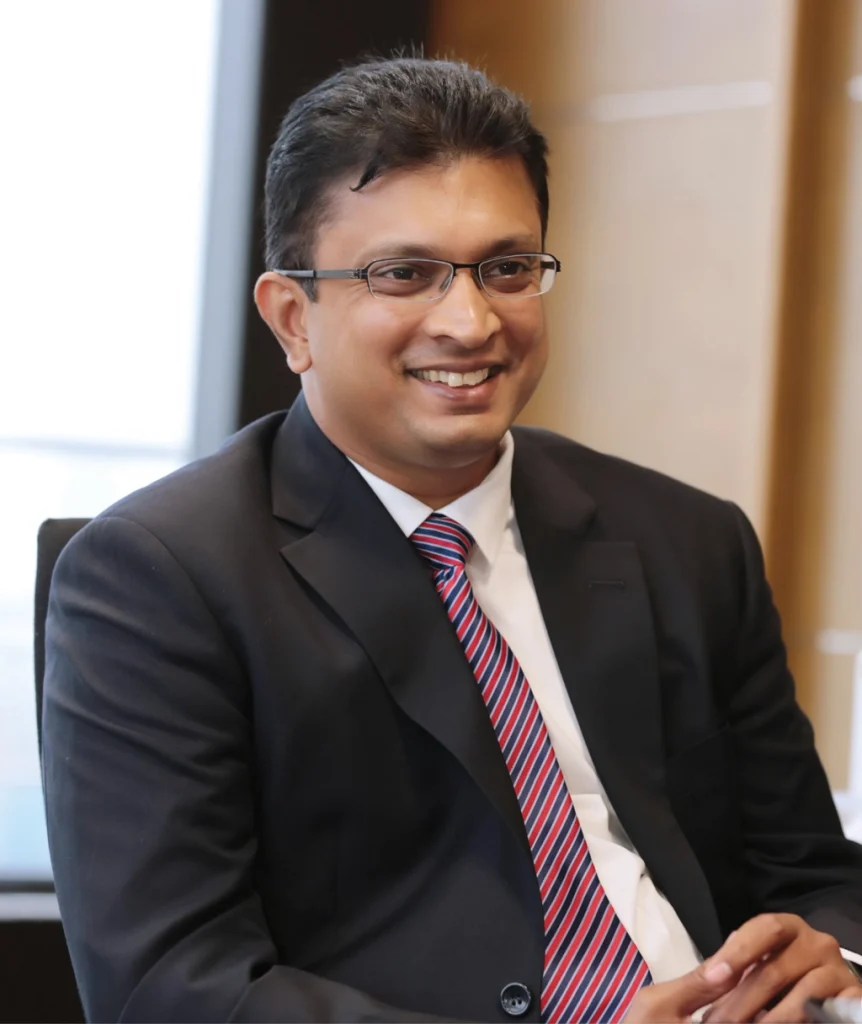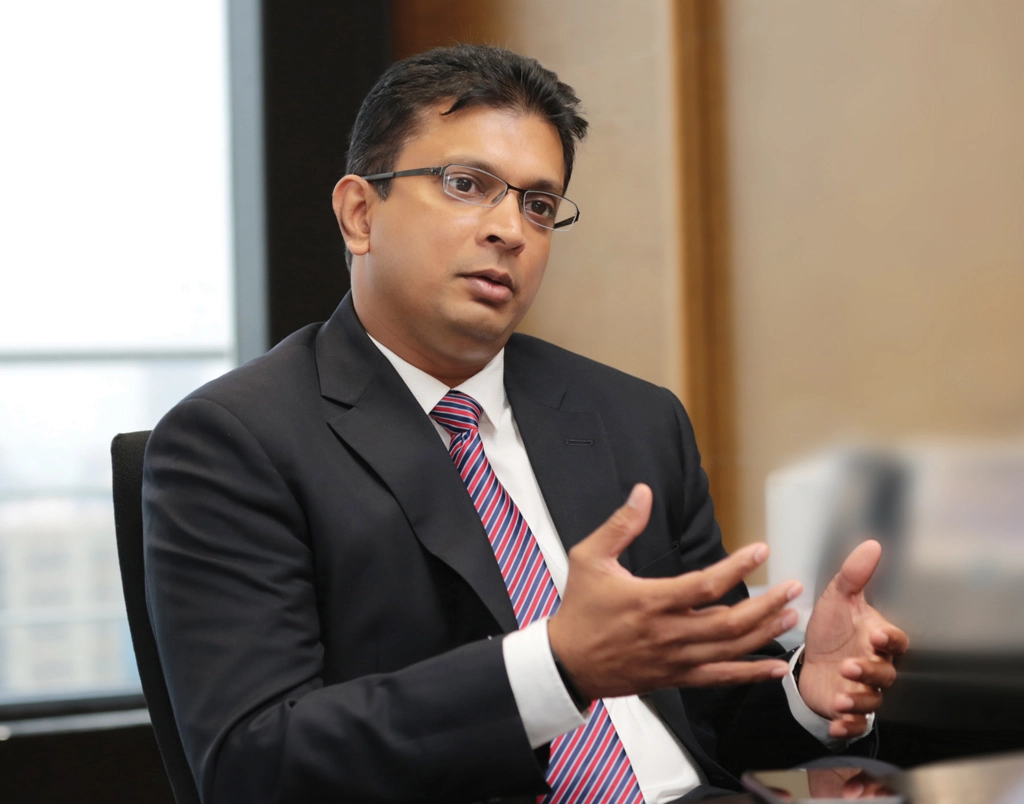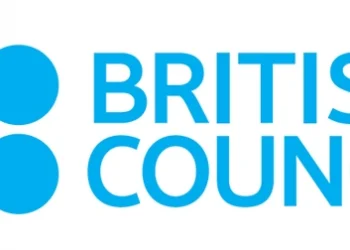
Dialog Axiata, is the largest foreign direct investor in Sri Lanka. Since its entry in 1995, the Group has invested USD 2.3bn in delivering the latest in mobile telephony and communications infrastructure to the country. Supun Weerasinghe, who took on the role of Group Chief Executive in 2017, is at the helm of this private sector telecom giant and shares on the robust performance of the Group as well as strategies to deliver the future, today. He draws on the strengths of the Dialog team, expansive network of partners and his extensive experience with Dialog and Axiata Group to make this a reality.
By Udeshi Amarasinghe
Photography Mahesh Bandara and Menaka Aravinda
You were appointed to the helm of this telecom giant in 2017, can you tell us about the performance of the Group?
Dialog has been well placed across all dimensions, recording strong performances over the last few years. 2016 was a remarkable year in terms of financial performance, with revenue growing by 17 per cent and EBITDA by 23 per cent. The expectations were set as I took on this role in January 2017, with the macro environment posing multiple challenges in terms of increased consumption taxes and growing usage of OTT services (Over The Top), which had a collective impact on growth momentum. The consumption taxes on most telco services increased from 27.6 per cent to 49.7 per cent in November 2016, significantly influencing consumer spending and growth momentum in Q1 2017.
To counter this challenge, we devised a strong and aggressive recovery plan across the Group, to be echoed during the second and third quarters. Amidst the challenging year that 2017 was, our published results for 2017 indicate that we have performed well.
In terms of revenue, results indicate a year on year growth of nine per cent and an EBITDA growth of 16 per cent. The culmination of our efforts in 2017 resulted in Dialog Group recording a net profit after tax of 10.8bn rupees an increase of 19 per cent over 2016.
We are starting to see results from the investments that were made towards data leadership since 2013 not only driving our business but also helping accelerated digitisation of the country. In 2017, we invested 27.3bn rupees, largely focusing on data, and the expansion of the 4G network, and those investments continue to have a catalytic effect on our business and the Sri Lankan economy.
Our success last year can be largely attributed to driving an aggressive organisation-wide cost rescaling programme. This approach was instrumental in transforming our outlook towards cost management, helping to grow EBITDA and Net Profits by 16 percent and 19 percent despite a modest revenue growth of nine per cent in 2017.
With Data Fast Becoming The Currency Of Advanced Economies, We Need To Drive Faster Speeds, Connectivity And Coverage Across Our Network. With This New Landscape In Mind We Will Continue To Accelerate Our Investments In Data.
What are your strategies or plans to take the Group forward?
With data fast becoming the currency of advanced economies, we need to drive faster speeds, connectivity and coverage across our network. With this new landscape in mind we will continue to accelerate our investments in data. From major cities to rural villages, our aim is to enfranchise entire communities that are yet to experience the digital revolution which is dependent on data. At the end of 2017, we have reached over 83 per cent of population with 3G technology while mobile 4G LTE expanded to cover 45 per cent of population. In addition, our Fixed Broadband services on Fixed 4G LTE covers 53 per cent of the population. Our intention is to reach more than 80 per cent of our population on 4G by the end of this year.
We believe that data can unlock economic growth. Recognising its potential, in September 2017, the Government too reduced taxes on data, given the impact it would create on the mobile economy and in birthing digital businesses and start-ups. The initial plan was to increase taxes on data to 49.7 per cent, which was later changed and taxes on data lowered from 31.7 per cent to 19.7 per cent.
While data is expected to strengthen a country’s ICT efforts, digitisation is instrumental in enforcing transformational change, and to this end we will drive digitisation initiatives aimed at transforming customer experience. However, this involves simplification of our processes, systems and even business model. Digitisation alone does not work unless we first simplify the processes by addressing convenience and improve end to end experience, for example through the Dialog Self Care App that serves more than one million customers. We have enabled customers to seamlessly activate 300 plus services with a few clicks. We hope to replicate this success across other channels/touch points and thereby be at the vanguard of adopting digital technologies and facilitating the growth of our digital economy.
In 2012, Dialog set out to build digital services in mobile payments, e-commerce, digital advertising, education and health. Positioned as a driver for digitisation in the country and region, we hope to strengthen our core capabilities and leverage local talent to further augment the power of digital. Our digital services portfolio has grown swiftly since then, with wow.lk achieving leadership in e-commerce, guru.lk becoming the market leader for digital education and doc 990 gaining strong traction across the digital health domain. Dialog also launched “Genie” a digital wallet to store credit cards on the phone for payments, which is geared to transform the payments landscape in Sri Lanka.
In September 2017, we acquired Colombo Trust Finance to facilitate the expansion in the scope of operations of the Dialog Group into the sphere of mainstream digital financial services. Dialog aims to bring together the realms of advanced digital connectivity and cutting edge Financial Technology (FinTech) to deliver a revolutionary suite of products and services, which will expand the vistas of financial inclusion in Sri Lanka. Significant within the envisaged inclusion drive, will be a focus on financing solutions aimed at increasing the affordability and accelerating the adoption of digital devices and services by a wide spectrum of consumers and businesses.
Dialog entered the financials services domain in 2012 when it was licensed by the Central Bank of Sri Lanka to operate the country’s first Mobile Payment Service eZ Cash. Now in its fifth year of operation, eZ Cash has secured over three million mobile payment subscribers across Etisalat, Hutch and Dialog Mobile Networks. In 2015, eZ Cash won the GSM World Award for the best Mobile Payment Network Globally in recognition of being the World’s first end to end inter-operable mobile payments network. More recently in 2017, Brand Finance named eZ Cash as Sri Lanka’s highest valued e-commerce brand.
Dialog also operates the TOUCH contactless transport payment service under license by the Central Bank of Sri Lanka.
Dialog is the largest foreign investment in the country and the Group continues to invest every year. Can you elaborate on this aspect?
Dialog continues to be a significant contributor to state revenues as the single largest FDI operating under the aegis of the Board of Investment of Sri Lanka, with investments up to USD 2.3bn to date. On average we have re-invested three times our net profits towards expansion of our broadband network and deployment of world class communications infrastructure in Sri Lanka. This remains key to our success, and we will continue to reinvest amidst challenging times.
As data consumption continues to upsurge, we need to expand coverage and increase capacity alike. A rise in the penetration of smartphones has increased the adoption of 3G and 4G, driving demand for broadband data services. We are committed to long term investments across our network, infrastructure, the backbone, fibre connectivity and everything in between to ensure that our Sri Lankan consumer receives a world class experience.
Dialog is committed to driving Sri Lanka become the regional leader in the ICT space, by developing world class ICT infrastructure. Our investments have been directed towards spearheading the connectivity revolution in Sri Lanka. This is driven on the agenda of, ‘Inclusive Digital Empowerment’ which is centred on delivering advanced technologies and empowering connectivity services, maximising availability and affordability to Sri Lankans across the country.
Dialog Is Committed To Driving Sri Lanka Become The Regional Leader In The ICT Space, By Developing World Class ICT Infrastructure.
Dialog is also one of the largest contributors of revenue to the Government. What can you tell us about this?
In 2017, we contributed 35.7bn rupees in direct and indirect taxes, fees and levies to the Government of Sri Lanka, which comprises nine billion rupees in direct taxes and 26.7bn rupees in indirect taxes and levies. The indirect tax component includes value added tax, telecom subscriber levy, nation building tax and CESS, which is collected on behalf of the Government.
Based on the studies conducted by the GSMA, the global organisation for mobile operators, Sri Lanka is one of the most highly taxed countries in the world – we are within the top five countries for the highest taxation on telecommunications services.
When these indirect taxes are excluded, Sri Lanka is rated as the most economical country in terms of the cost of owning a mobile. Multiple studies reveal that increased taxation has a negative correlation on the economic growth of a country, including investments. It is important to look at improving the sector specific taxation to make telecommunications services more affordable for every Sri Lankan.
What can you tell us about the ICT capabilities of the country?
The growth in ICT services in 2017 was significant compared to 2016, where the ICT/BPM industry grew at 7.7 per cent. The ICT Development Index ranks Sri Lanka at the top amongst its South Asian contenders, and 20th in APAC. In terms of broadband availability and broadband speeds, we are on par with some of the developed Asian countries, stemming from progressive policies that successive governments have adopted over the past 20 years.
Furthermore, ICT/BPM companies are expected to show a double-digit growth next year with the budget support for IT SMEs to be executed in 2018, while benefiting from grant schemes for innovation and entrepreneurship.
With a realisation that accelerated ICT adoption drives GDP growth, the rest of Asia continues to fast embrace ICT. India provides a good example on the impact of broadband and technology in improving the ease of conducting business index. The need for progressive regulations in other areas such as banking and financial services are key to forge ahead.
Are there too many players in the telecom sector in Sri Lanka?
After more than 20 years of market liberalisation, five mobile operators remain in the country. The operators are locked in a contest for limited market share and spectrum. With broadband adoption growing at a rapid pace, spectrum becomes a key element where one needs a significant amount of spectrum to deliver quality services to the customer. The fragmented industry in current state does not help optimum utilisation of scarce resources such as spectrum and requires consolidation to improve scale for the operator and a better experience for the consumer.
Bangladesh and India have gone through market consolidation and Pakistan is currently undergoing a similar process. In Sri Lanka, the fixed line space went through consolidation. The mobile sector however has not yet seen consolidation. Therefore, consolidation becomes key for long term sustainability of the industry and in improving customer experience by having access to increased spectrum to deliver superior broadband services.
Internet Of Things (IoT) Will Drive The Next Wave Of Telecom Connectivity.
Globally, what can you tell us about the sector?
Global telcos have reached strategic crossroads – while moving away from the outlook of a traditional telco to becoming digital service providers, they are accelerating digitisation. From the consumer side, Internet of Things (IoT) will drive the next wave of telecom connectivity. Currently we are in the fourth industrial revolution driven by IoT, Gigabit connectivity, Cloud computing, Big Data and Artificial Intelligence. Presently everything we have around us, can be connected to electricity or is powered by electricity. In the IoT era, everything around us will be connected through the internet. With the use of data you will have access to improve energy consumption, productivity, automation and the roll out of smart cities.
With the advent and acceleration of IoT devices, the need to expedite adoption of the fifth generation (5G) network becomes key. We conducted a trial last year and showcased about 1GB speed with a latency of one millisecond. The standard will be finalised towards the end of this year and we will see commercial deployment by 2019-2020.
5G is a technology that largely targets IoT and Industrial Internet – because of lower latency you can even enable autonomous vehicles or autonomous manufacturing. IoT will drive the next wave of connectivity by making machines smarter and improving productivity, powered by the internet.
For Sri Lanka to benefit from all these developments, we need to think long-term and one of the key elements will be to devise a long-term spectrum roadmap. Sri Lanka needs to identify where and how it will allocate and make best use of its limited spectrum resources to reap the benefits of the data revolution. For this, frequency bands of strategic importance like the 700MHz band that has been identified for mobile, needs to be cleared and assigned efficiently and monetised effectively. This will enable the expansion of 4G networks to deliver island-wide LTE coverage for high speed broadband services, and will directly result in low-cost services being extended to 100 per cent of Sri Lanka’s population. The 2600MHz band is also cost effective for capacity requirements of mobile LTE and should be assigned based on spectrum utilisation and investment commitment of the operators to ensure optimum utilisation of scare resources. In general, a transparent and equitable spectrum allocation process needs to be defined and adhered to for the advancement of affordable and accessible broadband and 5G services for all Sri Lankans.
Data is the new oil that will propel the next wave of growth with technologies such as IoT. As we have not explored its capabilities in the three previous industrial revolutions, it is important that the regulator and the policy makers act swiftly to create an enabling regulatory platform, to exploit the benefits of the fourth industrial revolution which can propel Sri Lanka’s development trajectory.
I Was Given The Opportunity To Lead The Bangaldesh Operations. Bangladesh Is A Very Large Market With Over 160 Million People, And The Complexities Provided Fertile Soil In The Preparation For Taking On A Leadership Role In Sri Lanka.
Dr Wijayasuriya is from engineering and you are from finance. Can you tell us about the transformation process?
Dr Hans Wijayasuriya comes with a Telecommunications engineering background, but he has a very acute sense of business and a deep understanding of finance. A challenge with any senior executive in the field of IT and Telecommunications, is that we constantly need to be up to date in terms of technology and work together as one team to drive the organisation. My technology colleagues are constantly on the prowl for ‘what next’, and we leverage their understanding on the recent technologies and trends to create products and services relevant to our consumer. We work together as one formidable and dedicated team complementing each other. In and through everything we do, we must deliver the latest in technology, make it affordable, relevant and inclusive.
The latest technology and trends from my team combined with business acumen to drive inclusive solutions, create the winning combination. Over the years we learnt how to look at technologies, how to adopt it to the local market, how to make it affordable and available to every Sri Lankan. That remains the real challenge. Technology as it is would not mean anything if we don’t make it relevant for the market.
You come from a banking background, and at the time you joined no one really considered joining a telecommunication company. What made you select this career path?
I made the move in 1999 just after a year into development banking and it was a big decision to move from one of the largest development banks to a very small telco. I found that banking was not where I wanted to grow. My liking was for a faster paced business and a dynamic environment, a business that was going to drive a rapid transformation. I joined the corporate planning team of Dialog, which was led by Mr Mothilal De Silva who was a great mentor, and I was privileged to work with a visionary leader like Dr Hans Wijaysuriya since the formative days of my career.
Can you tell us about yourself?
Prior to starting my undergraduate studies, I completed CIMA, which was then followed by a BSc in Accountancy and Financial Management from the University of Sri Jayewardenepura. I completed my MBA in 2002 from the University of Western Sydney, Australia and in 2012, the Axiata Group extended an opportunity to me to follow the Advanced Management Programme at Harvard Business School.
In 2013, I was seconded as the Chief Strategy Officer of the Axiata Group in Malaysia. That gave me perspective beyond Sri Lanka and what it was like to strategise on different markets and scales. In my capacity, I have worked with multiple markets – Malaysia, Indonesia, Cambodia, Bangladesh and Sri Lanka.
In 2014, I was given the opportunity to lead the Bangaldesh operations. Bangladesh is a very large market with over 160 million people, and the complexities provided fertile soil in the preparation for taking on a leadership role in Sri Lanka.
In November 2016, I came back to Sri Lanka to lead the Dialog team from January 2017 and it is indeed a great opportunity to be part of the team, driving Sri Lanka’s digital transformation.






